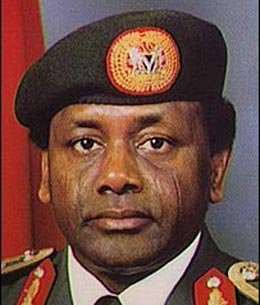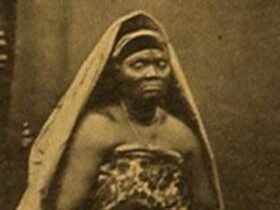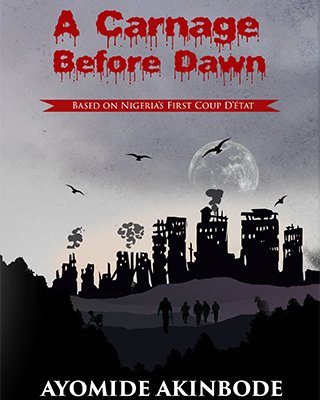No products in the cart.

When, on August 26, 1993, Chief Ernest Shonekan was sworn in as the Head of the Interim National Government of Nigeria, he vowed to restore peace and stability to the country. Interestingly, Shonekan went on to describe his government as a child of circumstance due to its unexpected role in supervising a smooth and peaceful electoral transition into a democracy after the annulled June 12, 1993, presidential elections.
Of all of Nigeria’s Heads-of-State, Shonekan was an exception, he was neither a military man nor a teacher, but a British-trained lawyer.
Shonekan was also the only unelected civilian Head-of-State and without a political party; the only one born in a Federal Capital – Lagos. Chief Ernest Shonekan became an unelected Head of State neither through election nor a coup. The military government of General Ibrahim Babangida had appointed him after a bungled transition effort to take the country from military to civilian rule.
Contents

Shonekan’s tenure lasted for only two months and twenty-two days (the shortest in Nigerian history) before he allegedly resigned on November 17, 1993. You can watch the video here.
Early Life and Education
Chief Ernest Shonekan was born to a civil servant-father on May 9, 1936, in Lagos, British-Nigeria. He had five other siblings.
Shonekan had his early schooling at Church Missionary Society (CMS) Grammar School, Nigeria’s oldest secondary school, which was established June 6, 1859. The young Shonekan had the best of high school education as his teachers were qualified, highly motivated and ready to teach. Also, the needed facilities were provided and students received all-round education including religious and moral instruction.
In 1962, Ernest Shonekan bagged a degree in law at the University of London and became a member of the Nigerian and English Bars.
Career
Despite being a lawyer, Shonekan was a consummate businessman who later found himself in politics. In 1964, he joined the Legal Department of the United African Company of Nigeria PLC (UAC) and rose through the ranks as an Assistant Legal Adviser, Deputy Adviser, and then Managing Director as of 1980. The company would later sponsor him to the Harvard Business School in the United States where he completed an Advanced Management Programme.
How Shonekan became Nigeria’s Head of State
After General Ibrahim Badamasi Babangida had dribbled Nigerians, in his usual Maradona way, for eight years, he realised that his game was up after the rancour that followed the June 12, 1993, presidential elections.
To both Nigerians and his military colleagues, Babangida just had to leave. However, the Evil Genius was not going to leave the stage just like that, without putting up a fight. Even if it was weak. Thus, he hand-picked a civilian member of his dying regime, to head the newly-constituted Interim National Government (ING). The man Babangida chose to head the ING was the 57-year-old Ernest Shonekan.
The only thing that qualified Shonekan to lead Nigeria at that time was because he was from Abeokuta – the birthplace of Chief Moshood Kashimawo Olawale Abiola, the purported winner of the June 12, 1993, presidential elections. As a matter of fact, one of the conditions given to Shonekan was that he buried the June 12 matter as soon as possible. To Babangida, it takes a monkey to catch a monkey.
Babangida then released a spate of decrees to cage Abiola and crush his political ambitions. The most important of this decree was Decree No. 61 which established Shonekan’s Interim National Government.
At around 3:30 p.m. on August 26, 1993, Chief Ernest Adegunle Oladeinde Shonekan was sworn in as Nigeria’s new Head of State and President of the Interim National Government by the Chief Justice of the Federation, Justice Mohammed Bello, at the Presidential Villa in Abuja. Interestingly, Decree No. 61 invested Abacha with the position of Senior Minister who would watch the government and then take over in the event of any unforeseen circumstance. Literally, it was asking the fox to protect and guard the henhouse.
Ernest Shonekan’s Foreign Policy
In his first address to the nation, on August 31, 1993, Ernest Shonekan called his government a ‘child of circumstance’ and then mentioned the planned pullout of Nigerian troops in Liberia. The new Head of State further stated that the ECOMOG intervention efforts were causing a huge drain on the Nigerian economy and it was best for Nigeria to leave the West African country. However, before he could do that, General Abacha booted him out and continued with the ECOMOG activities.
The Sani Abacha Coup of November 17, 1993
Ernest Shonekan’s tenure was to end on March 31, 1994, but General Sani Abacha had other plans. An angry Abiola filed a court suit to declare the ING illegal. Abiola was successful and the ING was eventually declared illegal on November 10, 1993.

Abacha, ever the cunning fox, flew from Lagos to Abuja and told Shonekan that since the court had declared the ING as illegal, the most honourable thing was for him to resign. Ernest Shonekan was wise, he had read the writing on the wall. Ever the gentleman, he did not argue and subsequently resigned and delivered his farewell speech.
Ernest Shonekan’s Achievements as Head of State
Although Ernest Shonekan’s tenure was a short one, he had some successes in his 82 days in office. He released many political activists who had been detained by Babangida in the aftermath of the June 12 protests. He also lifted the bans on journalists and allowed exiled opposition leaders to return to the country.
Shonekan also opened some of the universities that Babangida had sealed and held concrete discussions with the National Union of Petroleum and Natural Gas Workers (NUPENG) and the Nigerian Labour Congress (NLC) to end their labour strikes.
On the international front, Shonekan made attempts and lobbied for Nigeria’s debts to be cancelled by foreign nations, while also repealing many of Ibrahim Babangida’s brutal military decrees. He also tried to reduce the influence of the federal government on schools and negotiated with foreign nations like the United Kingdom to lift sanctions and ensure proper cooperation between the Nigerian educational sector and its counterparts abroad. Ernest Shonekan had inherited a carcass from Babangida, the economy was in a dire strait and there was virtually nothing left in the foreign reserves.

Shonekan also launched probes into the affairs of federal agencies like the National Electric Power Authority (NEPA), Nigeria Airways, Central Bank of Nigeria (CBN), the Nigerian National Petroleum Corporation (NNPC), and the Customs Service.
Ernest Shonekan’s Failures as Head of State
Chief Ernest Shonekan also had his failures as Head of the Interim National Government of Nigeria. On November 8, 1993, Shonekan decided to remove petroleum subsidies due to declining oil prices on the international market. AS a result, fuel prices skyrocketed from 70k (kobo) to ₦3.50k. Nigerians became angry and protests broke out all over the nation, especially in Lagos. Seven days later, on November 15, the Nigerian Labour Congress declared a total strike.
The National Assembly under Chief Ernest Shonekan was a typical Mad House. There were two factions of those in support of the ING and those against the Shonekan government. Some members of the Armed Forces, as well as the political parties, were involved in the plot to frustrate Shonekan and had his government dissolved.
Tensions mounted on the floor of the National Assembly and on November 2, 1993, the Senate President, Dr. Iyorchia Ayu was impeached and Senator Ameh Ebute succeeded him. Ayu’s impeachment was orchestrated by pro-Shonekan senators led by the late Senator Chuba Okadigbo. Interestingly, Okadigbo himself would be impeached as a Senate President seven years later in the year 2000 during Nigeria’s Fourth Republic.
Two days later, on November 10, 1993, Shonekan’s government experienced its greatest bombshell. A Lagos High Court presided by Justice Dolapo Akinsanya (February 24, 1941 – November 5, 2008) had declared the Interim National Government illegal in response to a suit filed by Abiola the month before. The court declared the ING as lacking any legality and rendered it null and void.
The ever-patient and cunning Abacha, after learning of the court judgment, now used the same Decree 61 that the court had declared illegal to arm-twist Shonekan to resign. Once Abacha became Head of State and delivered his maiden speech on November 18, 1993, he quickly abrogated that decree.
We always have more stories to tell. So, make sure you are subscribed to our YouTube Channel and have pressed the bell button to receive notifications for interesting historical videos. Also, don’t hesitate to follow us on all our social media handles and to as well share this article with your friends.
Feel free to join our YouTube membership to enjoy awesome perks. More details here…
Sources
Ayodele, O. and Onor, K. (2022, January 13). Ernest Shonekan obituary: an ineffectual leader during turbulent times in Nigeria. The Conversation. Retrieved from https://theconversation.com/ernest-shonekan-obituary-an-ineffectual-leader-during-turbulent-times-in-nigeria-174890
Aziken, E. (2022, January 15). Shonekan, the unforgotten, bitter truth. Vanguard. Retrieved from https://www.vanguardngr.com/2022/01/shonekan-the-unforgotten-bitter-truth/
Omogui, N. (n.d.). Nigeria: The Palace Coup of November 17, 1993 – Part 2. DAWODU.COM. Retrieved from https://www.dawodu.com/omoigui21.htm
Leave a Reply
You must be logged in to post a comment.








Leave a Reply
View Comments